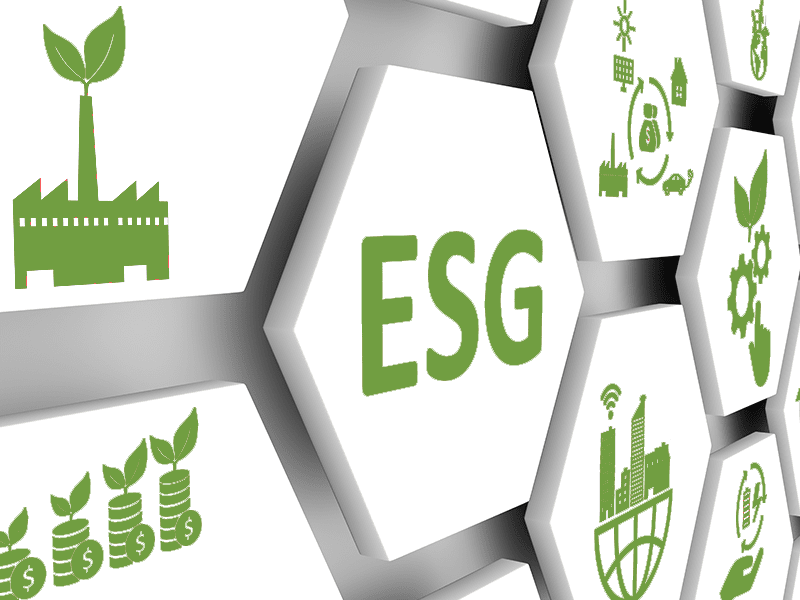Peter Drucker famously coined the phrase “Culture eats strategy for breakfast”. We believe the same can be said about the growing importance of Sustainability and Environmental, Social, and Governance (ESG) strategy. In working with clients on sustainability and ESG strategy, we have learned one universal truth; Your success is all about your company culture. The beliefs and behaviors demonstrated by your company leaders, employees, how you interact with one another and the outside world defines your culture and determines your success.
What is sustainability and ESG? Put simply, it is about meeting the needs of the present without compromising the ability of future generations to meet their needs. The principles of sustainability are organized around three pillars: environmental, social and governance.
- Environmental – Through the resources you procure, consume, and waste, as well as the pollution you emit, they all have an impact on our environment. Eliminating your impact to the environment or getting to Net Zero, referring to the balance between the amount of greenhouse gas (GHG) produced versus the amount removed from the atmosphere is the eventual goal. Net Zero is achieved when the amount we add is no more than the amount taken away.
- Social – As human beings we live across a broad social spectrum. How you interact and respect one another is key to sustainability and is core to your culture. As a business, your focus should be positive progress on employment regulations, occupational health and safety, training and education, diversity and equal opportunity, non-discrimination, and your contribution on the communities you serve.
- Governance – The management systems of policies, procedures, and internal controls you utilize to make decisions, comply with laws and regulations, meeting the expectations of your constituents. Successful and sustainable companies embrace strong governance practices.
ESG is a term used by asset managers and investors to evaluate overall Corporate Social Responsibility (CSR) as a form of self-regulation ensuring your company’s culture and actions have a positive impact on your financial performance, the environment, your consumers, employees, and communities you serve.
Why is sustainability and ESG important? It may seem obvious but take a step back. Corporate leaders are being continually challenged on the question of how the businesses they serve contribute to, and address the myriad of environmental, social, and governance issues that face us today. Choosing to ignore the importance of culture is to ignore the inherent recognition of its impact on your bottom line, our environment, and your relationships with customers.
There is growing societal expectations for corporate leaders to take a stand or engage in outright activism regarding important ESG issues. Leaders face increasing pressure from political activists, shareholders, social media, consumers, and their employees, to choose a side and make investment decisions based on the ESG issues they hold dear. In many instances, leaders are being compelled to provide public statements that clearly articulate their beliefs on subjects such as climate change, gender and racial equality, political affiliations, and investment decisions. Your company culture is built on the decisions you, as a leader, and your employees make in these areas every day.
We believe sustainability is more than just “going green”, it is a deliberate and measurable way of conducting business. Your company culture will be the driving force behind your ability to embrace and execute your strategy. We also believe self-regulation will give way to mandated compliance and disclosure requirements. Creating your sustainability and ESG strategy now will prepare you for this reality later.
How do you start? Every company is unique. It is in your uniqueness, that we tell your story and share with the marketplace your culture and contributions. We work with you to establish your corporate philosophy as it relates to the three pillars of ESG. We help you determine how you will create long-term value, and what specific sustainability and ESG strategies will be required to position your organization for success. We show you how by:
- Conducting a materiality assessment to understand the specific sustainability ESG risks impacting your business.
- We help identify the proper reporting framework(s) key to your industry and stakeholders.
- We align your organization around a comprehensive set of goals, philosophies, and expectations for sustainability and ESG consistent with your company culture.
- We help create the strategy to mitigate the risks and implement solutions identified from the materiality assessment.
- We direct the development of your company’s annual sustainability report where all your key sustainability and ESG information comes together.
Your Annual Sustainability Report – This is a tool to clearly articulate your company culture. The annual sustainability report is your report card and one of the key tools your company can use to share the progress your company is making and the positive impact you are having for the benefit of your stakeholders. The report showcases the goals and strategies you have implemented to drive positive ESG performance. Your sustainability report is a transparent accounting of your broader corporate social responsibility program. The purpose is to build trust, credibility, and prove your company’s ability to manage risk, care for the environment, honor your social compact, and promote financial and operational stewardship of our shared resources.
Your culture focused on sustainability and ESG will build credibility in the marketplace, confidence with investors, pride with employees, trust with regulators, and benefit the communities you serve. Your stakeholders are demanding greater transparency into how your company is making a positive impact on their lives.
If you are not preparing yourself for the eventual changes that will be demanded to get to a Net Zero way of life, you risk the very existence of your business. If you have not begun this process, there should be no time to waste. Developing a sustainability and ESG strategy will help create the culture you desire and infuse a sense of shared purpose at every level of your organization.
We would love to hear from you. If you would like to learn more and are considering how to navigate sustainability and ESG strategy, give us call. We welcome the opportunity to share our experience, insights, lessons learned, and help make a positive contribution to your company’s culture.





